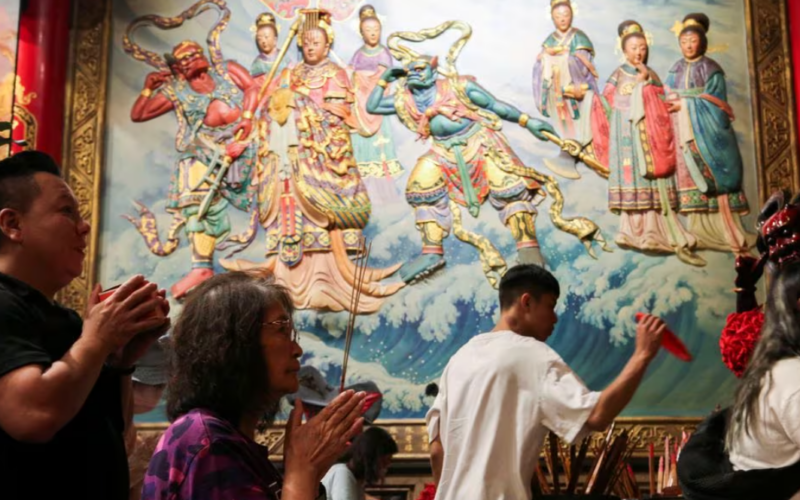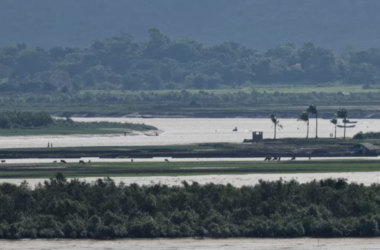Recent developments reveal that the Chinese Communist Party (CCP) is intensifying interactions with folk religious groups in rural Taiwan, employing religious ties as a strategy to influence political sentiments in favor of Beijing. In the run-up to Taiwan’s presidential and legislative elections on January 13, 2023, the CCP has increased religious trips across the Taiwan Strait, focusing particularly on the worship of Mazu, a sea goddess with a vast Taiwanese following.
According to Taiwan government documents and security officials, the CCP has sought to build ties with religious groups through various inducements, including subsidized trips to China. The religious trips, especially those centered around the worship of Mazu, have surged this year following the end of China’s prolonged zero-COVID policy. This religious campaign is seen as part of Beijing’s efforts to influence Taiwan’s upcoming elections in favor of parties advocating closer ties with China.
In response to China’s religious outreach, Taiwan has escalated monitoring of religious activities, including those related to Mazu. The Mainland Affairs Council, responsible for ties with Beijing, has confirmed that Taiwan is actively monitoring religious exchanges with China. The aim is to engage with Taiwanese temples and reduce the operational space for the CCP’s United Front, a network overseen by the United Front Work Department.
China has established influence over the Mazu faith in Taiwan through entities like the Religious Affairs Administration, operating under the United Front Work Department. Intelligence reports suggest that the CCP views the Mazu faith, with its close historical ties to Beijing, as a key axis for its influence operations. While China officially adheres to atheism, the United Front has historically used folk religions to connect with Taiwanese believers, who often visit China for pilgrimages.
As Taiwan approaches its elections, both China and Taiwan are framing their messaging to influence voter sentiment. Beijing views the ruling Democratic Progressive Party (DPP) and its presidential candidate Lai Ching-te as separatists, warning that supporting the DPP could lead to conflict. The CCP signals to Taiwanese voters that supporting pro-China parties equates to supporting peace, contributing to the broader effort to sway public opinion.
China’s influence campaign includes military drills near Taiwan, considered a “multi-front campaign” to influence voters. The People’s Liberation Army has released propaganda videos showcasing fighter jets, submarines, and Mazu, emphasizing protective influences across the Taiwan Strait. This narrative aligns with the CCP’s messaging that a vote for parties closer to China signifies support for peace.
Taiwanese security officials express concerns over religious trips being opportunities for China to gather intelligence and recruit sympathizers for influence campaigns. While some Taiwanese politicians call for tighter laws to counter Beijing’s religious incursions, there are also calls for religious neutrality in the face of political tensions.
The escalating religious exchanges and attempts to leverage the Mazu faith underscore the complex interplay between religion and politics in the lead-up to Taiwan’s elections. As both sides seek to frame the narrative and sway public opinion, the role of religious ties becomes a critical aspect of geopolitical maneuvering, with implications for the broader Taiwan-China relationship.








